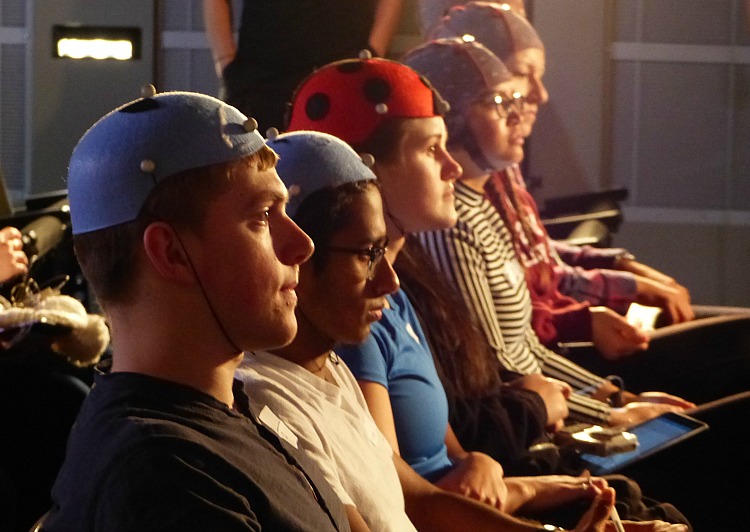Have I sung in the shower? The car? When I thought no one was listening? Absolutely. We all have at some point and it’s a trait humans share. We’re addicted to music, whether we’re doing it or we’re listening to someone else. But why?
The answer is explored in Thursday’s new instalment of The Nature of Things in “I Got Rhythm: The Science of Song.” Producer-director Connie Edwards and a phalanx of scientists and experts explore the impact music has on our lives.
“Ever since I was young I have always believed that music was an inherent part of being human,” Edwards says in the doc’s press materials. “As a ‘girl singer’ I saw and felt the effect that music had on people but I could never quantify it. Music has moved my soul from the beginning, but it has only been in the last 15 years or so that science appears to have taken a serious interest in why we sing, hum, warble, pluck or blow into instruments. Our team literally travelled around the world to meet with some incredible scientists and researchers who are doing ground-breaking scientific work using music. What was fascinating was how many of the scientists/researchers were also accomplished musicians.â€
“I Got Rhythm: The Science of Song” kicks off at McMaster University, where an audience—wired to sensors—listens to a band perform two songs. One is fast-paced and more likely to initiate swaying, and the other more low-key (see what I did there?). It doesn’t take long for some interesting results to emerge. Swaying or bobbing your head to music is contagious, as is experiencing tunes together, like at a concert or public event. It’s a fact scientists have discovered dates back to the Neanderthals, who crafted flutes out of animal bone.
And, it may be that music and rhythm doesn’t just make us feel good or bad emotionally, but it could literally heal. A Gothenburg, Sweden, study explored whether listening to music would help hpatients suffering from stress-induced cardiomyopathy, a.k.a. broken heart syndrome, while another test examines how early babies recognize, react and socialize with others after experiencing rhythm.
The Nature of Things airs Thursdays at 8 p.m on CBC.




